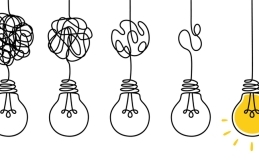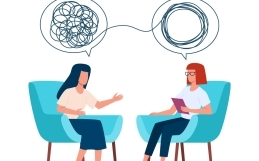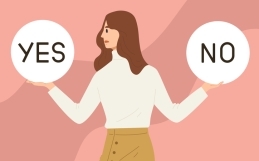Once upon a time, I was a major people-pleaser—a real pushover. I didn’t know where other people ended and I began, and my decisions were based on what would make other people happy or comfortable. I thought this made me easygoing, likeable, and generally pretty cool. Little did I know at the time that it really just made me lost, confused, and pretty unlikeable. You see, when you go through life as a pleaser, you aren’t living on your own terms. You think you’re being nice, agreeable, and drama free, but keeping your true self beneath the surface doesn’t do anyone any favors. In reality, it just results in you being surrounded by rude, selfish, and unforgiving people who, instead of appreciating that you’ve put their needs first, treat you like a doormat.
For most of my life, I used people-pleasing in the same way other people use drugs, alcohol, food, or shopping—as a way to avoid the discomfort of others’ disapproval. When it came to being disliked, invalidated, or perceived as being in the wrong, I was a really big baby. I could get into my childhood traumas and the events that prompted my need to please; but more important than why this all started is how I learned to overcome it. Because if you’re anything like I was, you know that at some point, you have to stop trying to please others and do something for yourself for a change.
Sitting around praying for people to understand how much pressure they put on you—or hoping they’ll one day lessen their demands, drama, and constant urgencies—is futile. Without changing your own behaviors, this kind of wishing and hoping isn’t just foolish, it’s straight up counterproductive. A few years ago, I realized that the only authentic way out of my people-pleasing dilemma was to start becoming aware of my own internal world, recognizing that the only person I could change was myself. Below are some of the things I did to stop people-pleasing and start living life on my own terms.
• Become self-aware. The greatest changes begin when we look at ourselves with interest and respect, instead of judgement and denial. When we invite our thoughts and feelings into awareness, we have the opportunity to learn from them instead of unconsciously reacting to them, and we increase our awareness of reality by being willing to encounter our personal truths. When I did this, it gave me a better handle on my impulse to please and allowed me to notice when I wasn’t being helpful. It gave me a choice to make different moves.
• Realize that doing too much hurts, rather than helps, relationships. Through my education, I learned that the health of my relationships depended on my willingness to take care of my share and be true to myself. I learned that when you do too much for others, you over-function in your relationships, which inevitably leads others to under-function. Though my intentions were good, they ultimately hindered the overall effectiveness of my relationships.
• Understand the importance of being authentic. I came to terms with the fact that we’re all unique individuals. We should be able to act authentically and connect with who we are and what we value, instead of always doing what others want.
• Learn to let go. If you’re stuck in the past and can’t let go of things that happened to you, chances are you’re accepting what your abusers, bullies, or other negative people in your life believe about you. You’ll remain imprisoned by them, never able to access your full potential, if you don’t learn to let go. I had to learn to let go of all the hateful things people had said to me that had me living in fear of others’ disapproval.
• Realize that avoiding problems doesn’t promote growth. When problems arise in our lives, we tend to react by immediately trying to get rid of them and the feelings they bring. I tried everything in my power to avoid experiencing even the slightest discomfort and pain, which fueled my urge to please. When we avoid our problems and try to get rid of them immediately, we only make things worse for ourselves in the future.
• Start navigating anxiety. When we make anxiety-based decisions, we aren’t being true to what we really want. We act impulsively, based on instinct, inevitably causing us to experience more anxiety in our lives. When I learned to better manage my instinctual urge to please, I found myself on more solid ground in my relationships with my family, friends, and myself.
• Learn self-acceptance. Self-acceptance is an ever-evolving process, and it’s up to each one of us to get that process in motion. Once I learned and accepted my worth, I was able to start taking on the project of becoming my best self.
It’s never too late to live a free life—one that’s finally on your own terms. For me, breaking out of the people-pleasing trap didn’t happen because I prayed that other people would change; believe me, I went down that road many times, and it never worked. Instead, I decided to find ways to change my own responses to people, realizing how unhelpful my pleasing behaviors were to myself and those around me.
Did you enjoy reading this article?
Once a week I send out a newsletter with new articles and unique content for readers. It is my way of staying in touch with you and giving you free advice based on some important topics.
Click here to sign up for my newsletter.
Do you know someone that has a tough time saying no? Steer them to my latest book, “When It’s Never About You: The People-Pleaser’s Guide to Reclaiming Your Health, Happiness and Personal Freedom.” It is available to order here!
Talk soon,
Dr. Ilene





